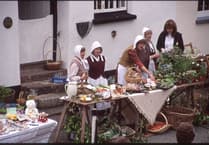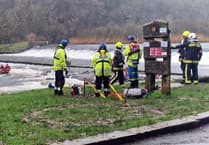BOROUGH councillor Lynn Daniel is on the verge of striking a blow for wildlife in West Devon.
Cllr Daniel, who represents South Tawton, is hoping to cut down the number of times verges get mown to preserve wildlife which lives in them.
The Green Party member has already persuaded parish council members in Sticklepath and South Zeal to create a map of all verges in the area, with some of them being cut back as normal and the rest being allowed to grow and remain a haven for wildlife.
The idea has created some controversy in different parts of Devon, with some observers objecting to areas being literally left to go to seed, while others see the move as essential to preserve wildlife such as bees.
Cllr Daniel launched a petition back in June calling on Devon County Council as the highways authority to ‘issue strong environmental guidance for all town and parishes and landowners to stop the constant mowing, strimming, flailing and pesticide spraying’.
She has pointed out that during restrictions imposed by the Covid 19 pandemic crisis, verges and hedgerow cutting was suspended, leaving wildlife and wildflowers to their own devices.
Now Cllr Daniel is moving the scheme along at local level and hopes to persuade her colleagues in West Devon Borough Council to follow suit.
The representative for South Tawton said: ‘You wouldn’t think such a subject would be controversial, but it apparently is. But I thought I was alone in my quest, although that isn’t the case.
‘However, at the next meeting of the Sticklepath parish council, we’re looking at a map of all verges and making a decision on how we’re going to manage them.
‘I’d like to see half cut and half left to grow. Obviously, where there is an issue over safety, such as at a road junction, the verge would be cut back. Elsewhere, though, they could be left.’
Cllr Daniel attempted to prove a point by using white vinegar instead of pesticide, an idea which nearly worked, but was thwarted by the weather.
She said: ‘I sprayed the entire village with white vinegar (as an alternative to a chemically-based pesticide), but unfortunately it rained.
‘Having said that, the piece I sprayed first did well, because it had a longer time to work.’
She added: ‘The next stage is to plan how we’re going to move things on and it’s something I’d like to see happening across West Devon.
‘As I understand it, the borough council is employing its own in-house personnel to do work like this.
‘We could do this easily and it wouldn’t cost us much.’




